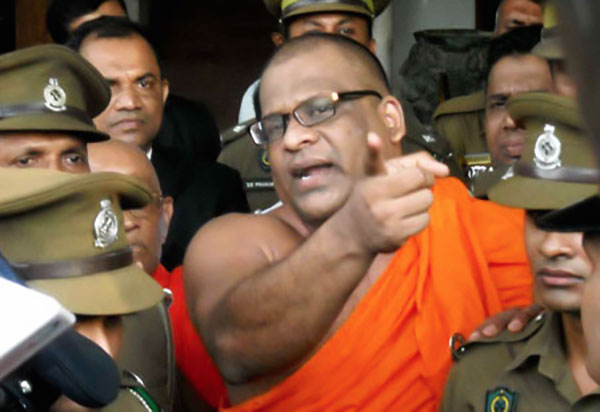The United States, in a new report, says the Bodu Bala Sena (BBS), continued to use social media to promote what it called the supremacy of the ethnic Sinhalese Buddhist majority and vilify religious and ethnic minorities.
According to civil society groups, highly visible social media campaigns by Buddhist nationalist groups such as the BBS targeted and incited violence against religious minorities, in particular the Muslim community.
The findings were mentioned in the 2021 Report on International Religious Freedom which describes the status of religious freedom in every country.
During the year 2021, the National Christian Evangelical Alliance of Sri Lanka (NCEASL) documented 77 incidents of attacks on churches, intimidation of and violence against pastors and their congregations, and obstruction of worship services, compared with 50 incidents in 2020. In 11 instances, NCEASL said crowds assaulted or threatened pastors, their family members, and congregants, the US report said.
According to the report, Muslim NGOs and organizations reported an increase in police harassment and surveillance of their activities since the 2019 Easter Sunday bombings. They said harassment included regular phone calls and visits by Government security forces to ask about activities of the organizations.
An NGO leader said violence against religious minorities varied depending on the religious minority group, stating, “when violence happens against the Christian community, it’s done at an individual level, while violence against Muslims happens at a communal level.”
According to Christian, Hindu, and Muslim civil society groups, while the overall number of incidents of violence against religious communities during the year decreased compared with 2020, incidents of monitoring, surveillance, harassment, and intimidation increased and often occurred in concert with harassment by local Buddhist monks and Buddhist nationalist organizations.
Civil society groups said that while the level of fear among religious minority communities was higher given this increase, they nonetheless continued to report cases of intimidation to authorities and NGOs.


